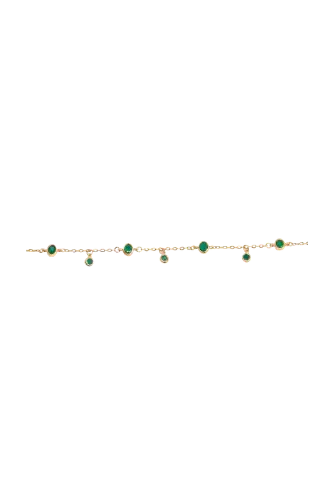Meet Gauri Devidayal, a law graduate from University College London and a Fellow of the Institute of Chartered Accountants in England & Wales. She pursued her career as a tax consultant with PricewaterhouseCoopers in London and Mumbai for 8 years. With no previous experience in hospitality, she started helping her husband in setting up The Table in Colaba when the bug of being in the restaurant business bit her. 11 years later, there's no going back!
Gauri now runs several restaurants and delivery kitchens in the city including The Table, Iktara, Magazine St. Kitchen amongst others.

It was actually my husband, Jay Yousuf, who had the idea of opening a restaurant. He had just returned from San Francisco which is one of the best cities for dining, and he felt there was a big gap in Mumbai back in 2008. I was initially only helping with the financial and legal aspects but then found myself getting more and more sucked into it. Eventually I decided to take a one year sabbatical and focus on the restaurant business entirely. It’s been 11 years now.
Given your time in London, how would you compare the food scene between Mumbai and London?
I felt that the food scene in London in 2007, when I lived there, wasn’t that great. Of course it had a lot more to offer than Mumbai did back then, but it still wasn’t at the level of some of the other food destinations around the world. Today it is a completely different story. London now has some of the most exciting chefs, restaurants, markets and bars in the world. Mumbai has a lot of catching up to do but we’re getting there!


You’ll find the best quality ingredients and flavours, and of course hospitality, whether it’s dine in or delivery. That’s our core philosophy.
Farm to Table is another concept that you adopted way before it became a buzzword here. Can you tell us a little about what prompted you to adopt the “farm to table” idea and what have been the challenges associated with it.
The Table was hugely inspired by San Francisco, which is where the whole idea of Farm to Table dining came to life with the likes of Alice Waters and Chez Panisse. When we began, we were hugely dependent on our vendors. I happened to have a farm in Alibag, across the bay from the Gateway of India, which is where we are located, and where we used to grow produce for our personal consumption anyway. One time I had a lot of leftover spinach which I just dropped off at the restaurant kitchen on my way back from the farm. The next day the chefs asked me where I had got that from and whether I could get more. They said it tasted fresher, and they had to throw away a lot less while cleaning it. That’s when the penny dropped and I realized I could grow produce for the restaurant there. So I enlisted the help of an urban farming specialist to help me prepare the farm for a sustainable, chemical free process of growing our own produce.

You have been a very active voice in the “order direct” movement. Can you tell us a little about what prompted you to take that stance and what advice would you give those who are on the fence and apprehensive about taking the leap.
Honestly, it’s a no brainer for me and should be for every restaurateur. We need to reconnect with our guests directly again and serve them ourselves. After all, it’s our food and our guests. All we are asking establishments to do is set up a parallel ordering platform. We are not suggesting that restaurants discontinue working with aggregators as we completely recognize the value they bring in helping with discovery of brands and acquiring new customers. But once we are able to win over a customer with our product, and they no longer need to discover us, we should be re-engaging with them directly going forward. We have to look out for the future of our businesses, and that is what’s at the heart of this.

I love love love good food and I love that it has become part of my work to share my love of delicious food with others. Eating elicits a heartfelt response and when it’s a positive experience, few things can beat that feeling of someone being satisfied and satiated with something you have been able to create. I also love the friends I’ve made all over the world, by virtue of being in the food business.

The first 10 days of the lockdown last year, when all our businesses were completely shut down, was the first time since starting this business that I actually, truly had the opportunity to mentally switch off. It was an incredible feeling to not have to think about work and spend unconditional time by myself and with my husband and daughter.
What little luxury do you indulge in everyday?
A midnight snack of dark chocolate.

Jewellery makes me feel feminine and beautiful. Even the simplest of pieces can brighten up an outfit. Older jewellery that I’ve inherited from my mother, for me, is also about passing on a legacy through some timeless pieces.
What piece of jewellery is close to your heart and why?
An uncut diamond choker my mother passed on to me. I can wear it with anything from jeans to saris, and it just always works perfectly. It’s a traditional piece that is incredibly versatile and timeless.
Do you have any tips for budding food entrepreneurs?
Be ready to work damn hard, don’t be afraid of making mistakes, do it for the right reasons and with complete sincerity.





